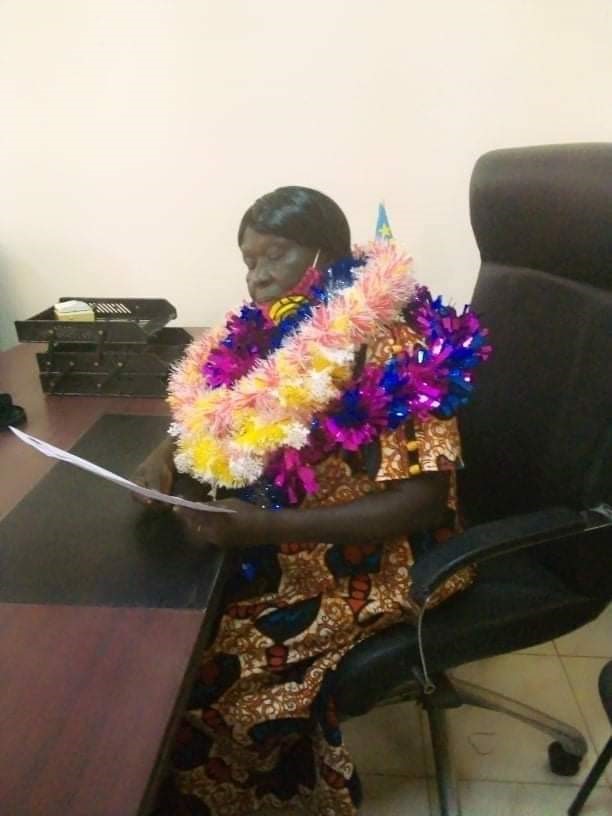A group of youth, the Monyiemiji Forum in South Sudan’s Eastern Equatoria State has petitioned the government against what they described as unjust employment policy by Non-Governmental Organisations (NGOs) in the state.
The Monyiemiji Forum is a youth group comprised of youth from greater Torit, Ikotos, and Lopit.
In a petition addressed to the state minister of labor, public services, and human resources development, and seen by Radio Tamazuj, the Monyiemiji alleged that they have been deliberately denied job opportunities by NGOs, national NGOs, UN agencies, community-based organizations, and civil society organizations.
The youth claim, these organizations are mainly dominated by certain ethnic groups and foreigners.
Kasio Oilaha Luka a youth from Lopit while reading the petition on behalf of the group says many qualified youths are unemployed because of tribalism in the NGO sector.
He said they demand an assessment and evaluation of the employment policy of all organizations in the state
“Most of the educated Monyiemiji resort to unproductive activities such as cattle raiding, divorce, early marriage, gender-based violence, and prostitution causing a high rate of HIV infections among the mentioned communities besides crimes like drug abuse alcoholism, opium smoking”, Oliaha read. “The negative socio-economic effects need to be addressed by the council authorities through employment. The Monyiemiji are making their appeal to EES authorities through the ministry of public service, relief and rehabilitation commission to systematically carry out quick assessments and evaluation of all national and international NGOs including UN agencies in the state.”
The youth also demanded that the state government be involved in the recruitment processes to curb cases of nepotism.
“They (state government) should have the list of all applicants including those who apply through emails and the shortlist of the successful candidates. These will help to discover those who did not apply but got the job through connections. RRC should act against NGOs who violate procedures," he stressed.
A member of the group, Okitik Simon warned that no recruitment exercises will be held if the local youth are not included.
“That is the issue we are going to expect if shortlisting comes and if Angulak (non Otuho speakers) are shortlisted there, we are going to suspend recruitment. There will be no recruitment unless our local youth are recruited but otherwise, it will be a serious one,” he declared.
Okitik threatened that the youth may take other measures if the government does not respond to their demands in time.
Responding to the petition, Eastern Equatoria state minister of labor, public service, and human resource development Agnes Florence Udwar said the matter will be considered.
“Yes, it is true, when they came to my office they presented the petition and one of their leaders read the petition and gave me the copy. I told them that am still new in the ministry, we will go through with my director because they are technical people so that we see what to do," Minister Florence said.
She added, “My director briefed me earlier am aware of this issue of unjust employment in the state until they earlier presented the issue of unjust employment to the council of ministers but I think they did not reach a solution. At the moment we cannot respond without consulting the NGOs to collect the data, how they do their recruitment."
Flora Sebit Jada, an activist working for Women Agency for Progress Organization (WAPO) said the youth have a right to demand equal job opportunities.
“I suggest that the recruitment procedures which are done should be done in a fairly way which does not affect other ethnicity or groups so public service should work hard in terms of supporting the recruitment process, scrutinize how NGOs are selecting their candidates”, Flora adds
It is not clear how and when the government will deal with the petition case as youth are mounting pressure to cause violence if nothing is done."|
Section 18 of the 2016 NGO Act states that potential employers should ensure that not less than 80% of the total number of staff employed in the organization are South Sudanese nationals in all levels of management. It also states that employers should engage foreigners only if there are no qualified South Sudanese professionals available for those positions.




